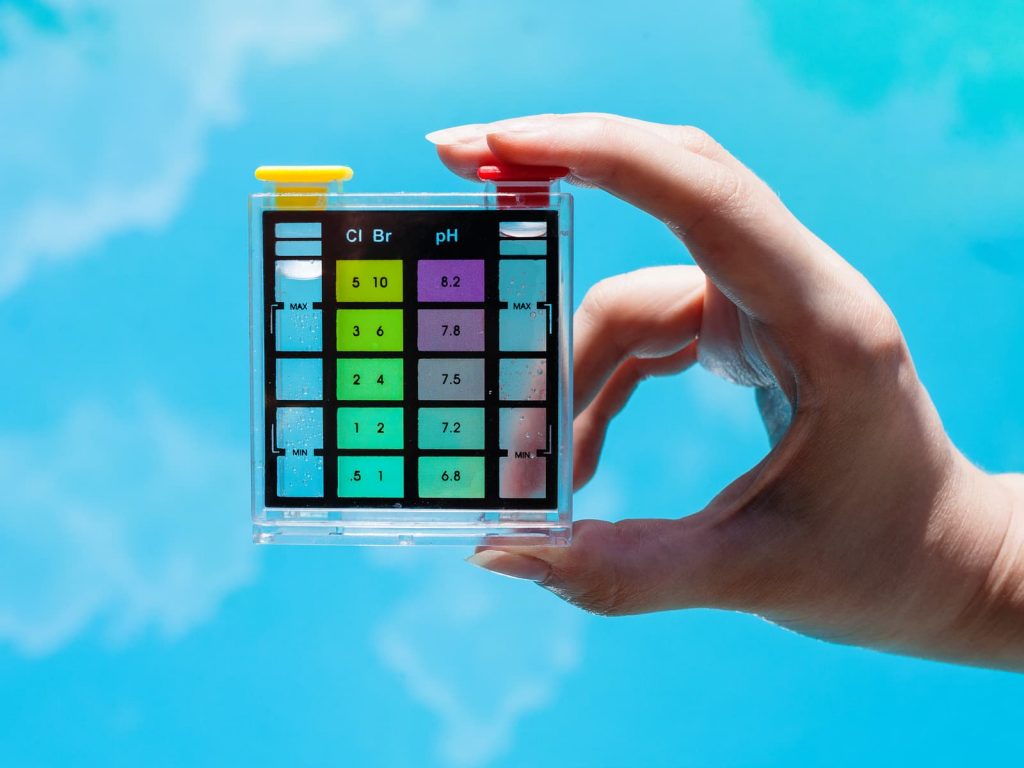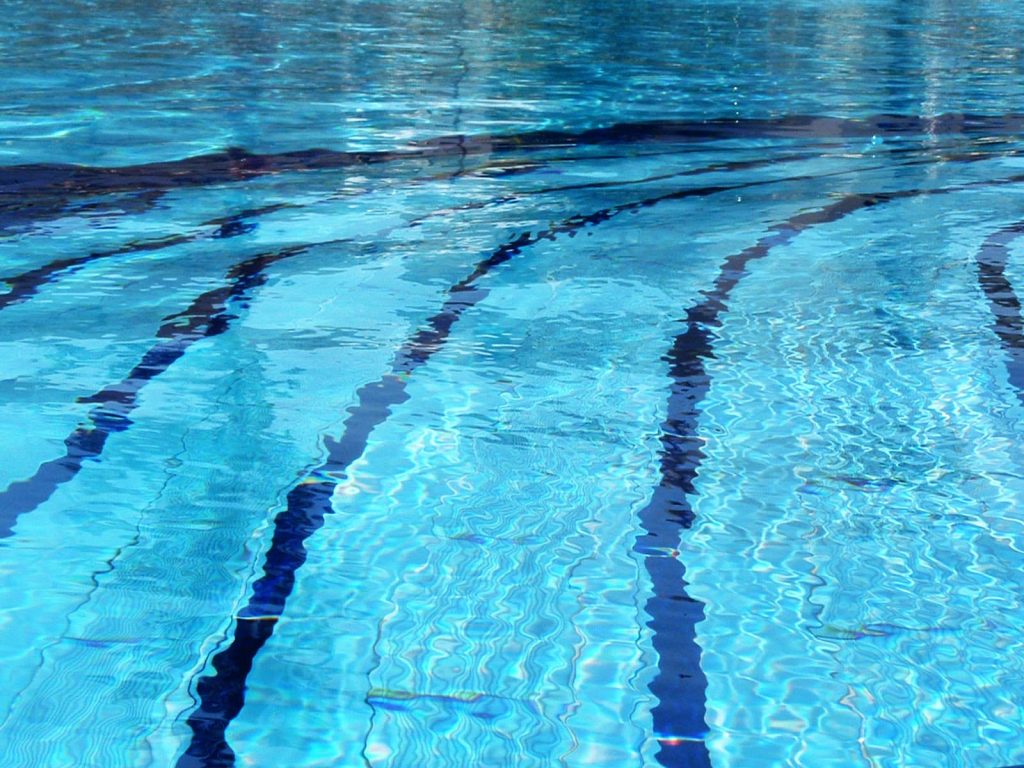Residential and Commercial Pool Care – Controlling the pH Balance
Controlling the pH balance of a pool properly is an essential part of residential and commercial pool care for the comfort of swimmers, the efficiency of disinfectants, and the protection of pool system components. As any good Certified Pool Operator® knows, you must test the water chemistry and always adjust pH last.
Lowering pH
To lower the pH of a swimming pool, acids or acid salts like sodium bisulfate and NaHSO₄ must be added to the water. This increases the H+ ion, lowering the pH. The most common liquid acid for pH adjustment used in pool/spa environments is muriatic acid. If muriatic acid is used, it is usually diluted with 50% water before it is fed into the pool water. This helps prevent corrosion of the pool equipment. Other times, sulfuric acid or sodium bisulfate are diluted and mixed into the water to form an acidic solution. All three solutions may be added to the circulation water through feeder mechanisms.
For pools that use sodium hypochlorite or calcium hypochlorite as a sanitizer, carbon dioxide may be used as an alternative to any of the acids listed above. Carbon dioxide produces carbonic acid when dissolved in water. Carbonic acid is a weak acid that decreases the pH of a pool. Using carbon dioxide creates the byproduct called bicarbonates which raises the total alkalinity of the pool. Pools using calcium hypochlorite as the main disinfectant and pools with source water high in alkalinity or calcium hardness may have issues with scale formation when using carbon dioxide.
Increasing pH
To increase the pH during residential and commercial pool care, a basic material, often sodium carbonate, is added to the water. Other bases used to increase the pH are sodium hydroxide, sodium sesquicarbonate, and sodium bicarbonate. When a base is added, there is an increase in OH ions and pH. The best method is to use sodium bicarbonate to achieve the proper alkalinity and then make further corrections with sodium carbonate. Acids and bases should be added to the water exactly as the manufacturers label direct. Always remember that no one should be in the water and the swimming facility should be completely closed until all chemicals are properly dissolved and dispersed.
pH Related Issues
Some issues at residential and commercial pools from an incorrect pH balance can be caused by corrosive or scaling water. Corrosive water can cause etching of the pool surface, the staining of surface walls as well as corrosion of metals. It can also cause chlorine loss, wrinkles in vinyl liners, and skin or eye irritation.
Scaling water can cause clogged filters and heater elements. It can also reduce the circulation of the pool as well as make the water cloudy. Some other issues caused by scaling water include chlorine inefficiency, as well as eye and skin irritation.
Residential and Commercial Pool Care Experts
The best way to learn about residential and commercial pool care is through CPO® certification. Pool Operation Management offers award-winning CPO® certification courses to give you the most comprehensive education in everything involved with pool operation. Over a two-day course or during online training, our experienced professionals will not only help you get certified, but you will acquire real-world knowledge to aid you in your career of pool operation.
We also offer professional pool maintenance for both residential and commercial pools, pool operation consulting and can even act as an expert witness in pool-related legal cases. To start your CPO® certification courses or use our many services, contact Pool Operation Management today.








